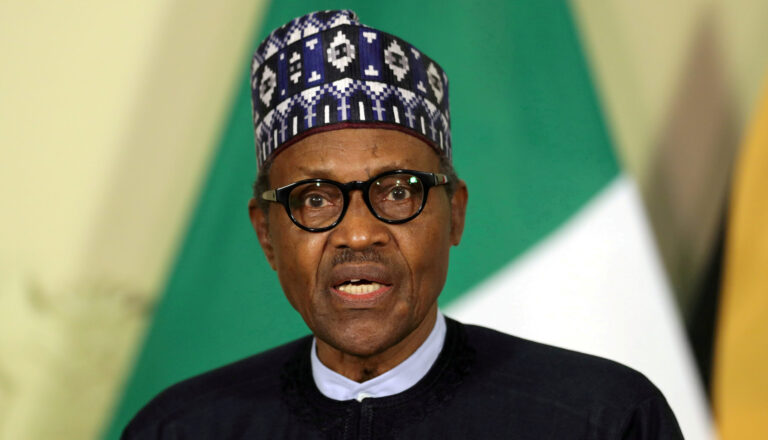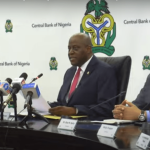After three years of a single-digit inflationary rate regime in Nigeria, the country fell into the double-digit inflation era in February 2016, and has failed to cut itself free in the last seven years under President Muhammadu Buhari.
Nigeria had experienced the single-digit inflation rate under former President Goodluck Jonathan, with the rate stuck between 8.48 per cent in 2013 and 9 per cent when he handed over to President Buhari in May 2015.
Join our WhatsApp ChannelEver since, the rate has been on a steep rise, from 9 per cent to 20.52 per cent as of August 2022, as President Buhari’s administration lost control of inflation to several factors, including bad government policies and global economic headwinds.
Factors behind Nigeria’s double digit inflation rate
Global economic headwinds
In 2016, Nigeria was exposed to global economic headwinds, as crude oil fell below $27 a barrel, the Chinese stock market was on a downward part, slowing down the Asian country’s GDP.
Also, the UK voting to leave the European Union shock global stock market – which was already suffering from the Chinese stock meltdown – resulting to investors dumping shares and drastically reducing investment into the equity market.
This led to a whopping loss of $2 trillion in investment in a single day on June 24, 2016, a day after UK voted to leave EU. This reduced availability of cash for investment in global trade, and Nigeria was at the receiving end, as the global economic headwinds coincided with the ban of forex for some imported goods in Nigeria.
Bad economic policy
Banning of imported goods from official FX market: While other countries survived the period, Nigeria couldn’t, thanks to the decision by President Buhari and the Central Bank of Nigeria (CBN) in June 2015, to ban 41 imported goods and services from accessing forex in the official foreign exchange market in the country.
This policy forced importers of the banned goods and services to depend on the black market, where forex was sold at a premium price, to obtain forex for their international trades.
As a result, prices of goods and services were hiked, as traders passed the extra cost of buying forex in the parallel market to consumers, triggering soaring inflation.
Nine months after the 41 items were banned, Nigeria’s inflation rate entered the two-digit regime, rising from January 2016’s 9.6 per cent to 11.4 per cent in February same year, which saw the country’s economy entering recession after consecutive contractions between first quarter 2016 to Q1 2017.
Note that at the start of 2015, dollar rate was below N200 in the official and parallel market, but it now exchanges above N430 and around N690 respectively.
Border closure policy: While Nigerians were getting accustomed to the new reality of a double-digit inflation rate, President Buhari, in October 2019, ordered the closure of the country’s land borders, which is the cheapest route to import goods for small, medium and large companies.
That month, Nigeria’s inflation rate was 11.61 per cent, however, with cost of goods and operational expenses shooting up in response to the border closure that led to many companies shutting down operation, the rate surged to 15.75 per cent in December 2020.
COVID-19 pandemic shock
Five months after President Buhari’s decision to shut Nigeria’s border, preventing trades with neighbouring countries, Coronavirus struck, disrupting global trades, and forcing countries to lockdown to prevent COVID-19 spread.
COVID-19 pandemic compounded the impact of the land border closure on Nigerians, contributing to inflation soaring to 15.76 per cent at the end of 2020, same year the country entered another recession.
This makes it two recessions under Buhari as President. Recall that as a Military Head of State, Nigeria had also suffered recession under Buhari between 1983 and 1984.
Impact of soaring inflation on Nigerians
Loss of middle class, rise in poverty population: Within seven years, inflation has soared by 128 per cent, erasing the middle class, and impoverishing more Nigerians, thereby increasing the poverty rate from 90.80 per cent in 2015 to 92.50 per cent in 2018, according to Macrotrends.
The World Bank had also stated that since 2015, more Nigerians have fallen below the poverty line, as poverty reduction has been stagnant under Buhari. In 2018, the number of extremely poor Nigerians was 82.9 million, but the figure has been projected to rise to 95.1 million by 2022.
Soaring inflation has eroded the value of wages paid to the working class in Nigeria. As a result, the N30,000 minimum wage in Nigeria is being discussed for review as cost of living has risen by 128 per cent under Buhari, (71.2 per cent since the minimum wage was fixed in December 2019).
The President of the Trade Union Congress (TUC), Festus Osifo, had stated that, “The value of the N30,000 minimum wage has been eroded. It cannot take workers to work again.”
Cost of borrowing rises: Due to the hike in inflation, the Central Bank of Nigeria has increased monetary policy rate (benchmark for interest rate) more than twice, raising it from 11 per cent in 2015 to 15.5 per cent as at CBN’s last Monetary Committee Meeting (MPC) in September 2022.
The increase in interest rate has raised cost of borrowing, causing the price of goods and services to rise, as companies transfer the cost of loan to customers in order to keep expenses down. Aside from the 41 items initially banned and the border closure, the hike in interest rate has also fueled inflation.
Although, CBN’s decision to raise MPR is a norm when inflation soars. Such decision is meant to slow down inflation, and eventually tame it in the long run, as rise in cost of loan will discourage companies from borrowing, and with purchasing power of consumers down, firms will be forced to drop prices of goods and services, leading to a dip in inflation rate.
Job loss, wage cut: While inflation erodes the value of wages, it also leads to job loss, raising the unemployment level in Nigeria. In first quarter (Q1) 2015, Nigeria’s unemployment rate was 8.2 per cent, but this figure has been projected to hit 33 per cent this year.
As CBN tries to tame inflation by raising interest rate, this could put off companies, discouraging them from obtaining loan, and this will affect production output, as manufacturers and service providers won’t have enough liquidity to maintain their production level.
This will render some department redundant. The lack of cash and high cost of operation resulted to hair maker, X-Pression, cutting half of its workforce, which fell from 13,000 workers to about 7,000 employees in 2019.
The company, like many other small and medium size companies, were also terribly affected by the border closure, which it depended heavily on. With companies distancing themselves from expensive loan, and unable to keep production afloat, revenue fell, forcing some that retained jobs to slash workers salary.
















Follow Us